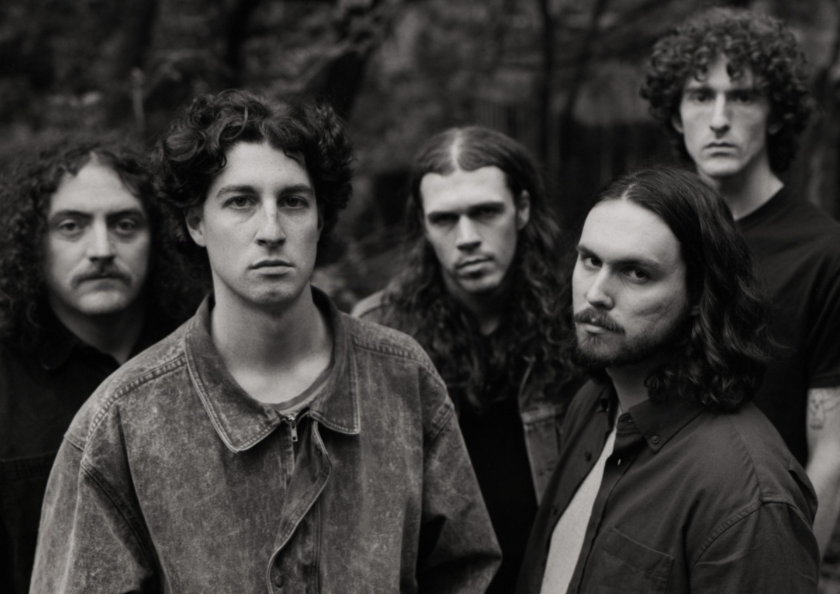Knifeplay showed Club D a powerful performance on the sleepy night of Sunday, September 21st. A five-piece band from Philadelphia, Knifeplay tends toward the darker, shoegazey corner of alternative rock. Touring in support of their latest release, B-Sides & Rarities (2015–2020), the band delivered a performance that was both haunting and cathartic—an experience that lingered long after the final note.
The show had two opening acts, each setting a distinct tone. First came Spencer Radcliffe of Athens, OH. Radcliffe played a stripped-down, sincere set in the traditional singer/songwriter format: just a dude, his guitar, and the microphone playing mostly originals, some covers, and some unreleased. While his sound was one of raw, acoustic vulnerability for this set, it was not until after the show that I learned he also produces electronic music under the moniker Blithe Field, who I am coincidentally quite a fan of. Knowing this added a layer of depth to his performance, as I connected the dots between his introspective acoustic work and the ambient textures of his electronic compositions.
The second opening act, Euphoria Again, was more slacker rock and perfectly timed autumnal indie folk, bridging the gap between Radcliffe and Knifeplay smoothly. Their lineup included vocalist and guitarist John Klein; guitarist, keyboardist, and vocalist Johanna Baumann; drummer Joey Ginaldi; guitarist Evan King; bassist Max Black; and pedal steel player Miles Coulahan. The downbeat, easy tempo and comforting melodies of Euphoria Again gave the music a feeling like a good stretch.
Headliner Knifeplay started as a bedroom project by TJ Strohmmer and has evolved into a collaborative outfit that now includes bassist Alex Stackhouse, keyboard player Max Black, lead guitarist Johnny Klein, guitarist and vocalist Johanna Baumann, and drummer Joey Ginaldi. Klein, Baumann, and Ginaldi are also Euphoria Again bandmates, who made playing two consecutive sets seem effortless.
Difficult to categorize, Knifeplay’s sound oscillates between shoegaze, slowcore, introspective folk, and alternative grunge. For me, however, their most distinguishing quality is their impressive live performances—to put it bluntly, they ‘Knife-played’ very well! 😛
While Strohmer’s heavy, philosophical lyrics hit hard on the recording, Ginaldi’s hit the hardest live. He seemed to play with his whole body which had a cathartic effect. Strohmer’s lyrics are harder to make out at live shows, but his voice still serves as an instrument, blending beautifully into the rich sound. Knifeplay had an immediate presence and connection to the crowd, and a mesmerising use of heavy effects.
The pacing of songs ranged from slow and methodical to complex and multipart. Not only did Knifeplay control the large shifts in energy but they took advantage of them, going from energetic, noisy bursts to more lingering, dejected elements.
I like an underground show that is literally underground—they feel neat when almost nothing about an underground scene is naturally neat. Knifeplay was quite striking in Club D’s dark basement under low, white light, leaving me with a vivid memory. Even still, I reckon their cool, mysterious nature would translate well to larger venues, and I would eagerly see them again.


Leave a Reply